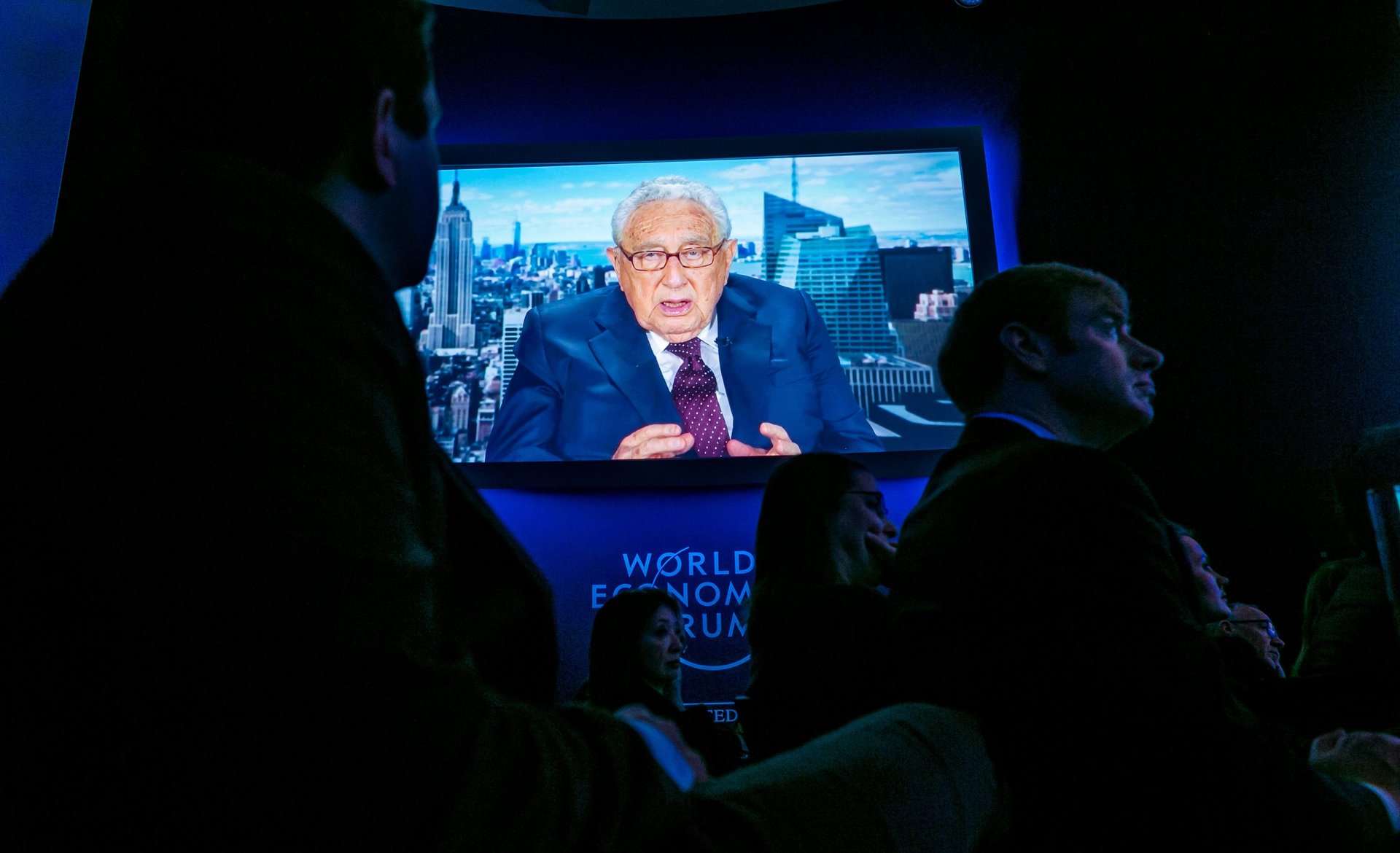Henry Kissinger criticized Trump’s broadsides against Europe, and urged him to help build a new world order
Davos, Switzerland


Davos, Switzerland
Just hours before Donald Trump’s inauguration on Jan. 20, Henry Kissinger, the geostrategist and former US secretary of state, took a swipe at the new president for saying that NATO is obsolete, and urged him to retract “his threat of American withdrawal” from the US-European alliance.
In a satellite interview broadcast here, Kissinger, an adviser to presidents for almost a half-century, said the US-European military alliance remains a central aspect of the global order. But he said the European order does need reconstruction to reflect the very different players on the world stage—”at least those that can disturb the equilibrium.” Kissinger did not name those countries, but contextually appeared to mean Russia and China.
“I do not think it is obsolete,” Kissinger said. “It is vital.”
In his inauguration speech, Trump said his administration will honor “old alliances and form new ones,” and did not mention any country specifically. But he painted a new era in which generosity will not be the first impulse. The American middle class has suffered while countries around the world have been enriched, he said. “From this day forward it’s only going to be America First, America First,” he said.
“We’ve defended other nations’ borders while refusing to defend our own, and spent trillions and trillions of dollars overseas while American infrastructure has fallen into decay,” Trump said. “We’ve made other nations rich while the strength and confidence of our nation has dissipated.”
On Jan. 15, Trump rattled American allies by repeating a campaign refrain that NATO is passe, and he suggested that he might not get along very well with German chancellor Angela Merkel, leader of the most powerful member of the European side of the alliance. In subsequent remarks, Trump suggested that he was using a barroom-style bantering tactic with the intention of scaring NATO members into meeting their obligation pay 2% of their GDP on defense. As of now, just five of the 28 members do.